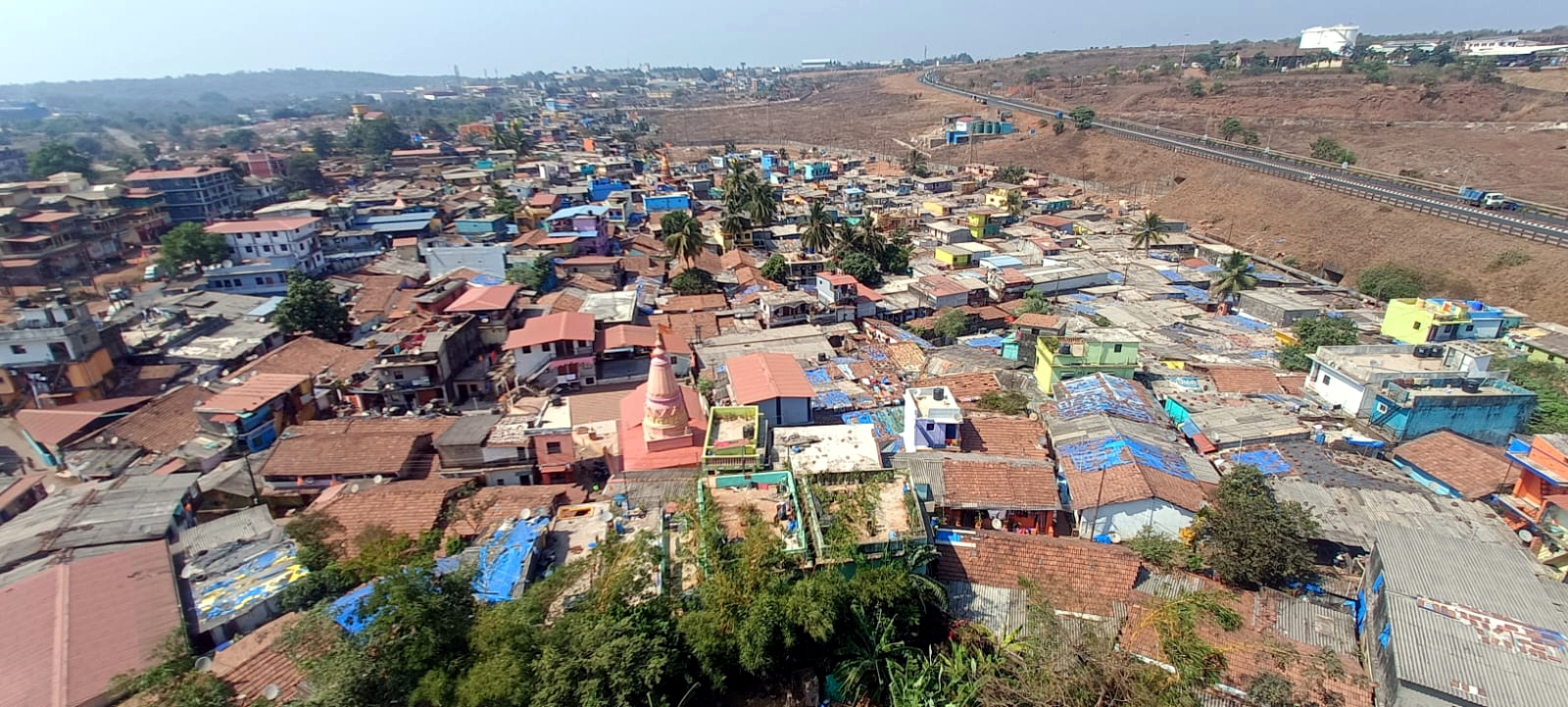
Illegal structures in Zuarinagar, Goa's largest slum, are facing renewed scrutiny.
Photo Credits: The Goan
VASCO
The High Court’s recent directive to crack down on illegal structures across the State has triggered concern and uncertainty in Zuarinagar — Goa’s largest slum and a major political vote bank in Cortalim constituency.
With orders to take stringent action on encroachments on government, comunidade, and tenanted lands, as well as structures lining highways and paddy fields, the sprawling settlement of Zuarinagar could soon come under scrutiny.
Though initial surveys are reportedly limited to roadside encroachments, residents fear wider implications. “These houses have been here for decades — some for as long as 40 years,” said one house owner. “We pay our taxes, but our legal status remains in question. There are nearly 30,000 people here, with over 15,000 voters. What happens to us if the government acts?”
From worker housing to political powerhouse
Originally set up to accommodate workers of Zuari Agro Chemicals, Zuarinagar has since evolved into a dense settlement with its own micro-economy — shops, markets, and hundreds of residential structures, many built without proper land ownership or permissions.
Zuarinagar is politically significant, forming the largest voter block in the Cortalim Assembly segment and commanding five of 11 panchayat members in Sancoale. This clout has often shielded the area from enforcement actions, even as encroachments multiplied, and infrastructure lagged.
“These settlements have grown under political protection,” said a former local leader. “Their transformation into vote banks has raised uncomfortable questions about the nexus between politics and land encroachment.”
Sancoale Panchayat, under pressure from the High Court’s directive, has begun a survey against encroachments. The question now is whether the crackdown will extend into Zuarinagar, where political stakes are higher, and displacement could have electoral repercussions.
Failed rehabilitation plans
Zuarinagar residents have long heard promises of rehabilitation — promises that never materialised. In 2017, then chief minister late Manohar Parrikar unveiled an ambitious plan to clear illegal structures and shift residents into vertical housing with proper amenities under the Goa State Rehabilitation Board (GRB).
“There is no better place than Zuarinagar to realise the Prime Minister’s dream that every citizen should have a house by 2022,” Parrikar had said. “We want to ensure everyone has clean houses with proper sanitation. The government will provide all support.”
The scheme, led by then MLA Alina Saldanha as chairperson of the GRB, envisioned high-rise apartments with kitchens and bathrooms for every household. Ownership rights were to be granted to encourage cooperation, and the vacated land would be returned to legal stakeholders — the communidade, industrial estate, and private owners.
However, the plan ran aground.
“We conducted surveys and even studied similar models in Pune,” Saldanha had said. “Most people living in small houses were on board, but a section of residents with large illegal buildings refused to participate. Then Parrikar passed away, and the file stalled.”
By 2020, then Sancoale Sarpanch Girish Pillai declared the scheme dead.
“Parrikar gave me a file and his word, but nothing happened. Despite Saldanha being chairperson of the GRB, she didn’t act. This looks more like political revenge than governance,” Pillai alleged.
Saldanha had refuted the charge, maintaining that the scheme was viable and funded, but political will dissipated after Parrikar’s death.
Future at crossroads
With the Sancoale region now home to major projects — BITS Pilani, the Birla Temple, DMart, Tata Housing, and Prestige Construction — the pressure to regularise and clean up Zuarinagar’s landscape is mounting.
Political observers believe that while the area’s vote bank status has long insulated it, the High Court’s unambiguous stance may force action. The question is whether the government will implement the directives or attempt to revive the old rehabilitation plans as a political balancing act.
“There’s always talk of clearing illegal houses,” said a long-time resident. “But when elections come, the same leaders come to us asking for votes, promising protection or development.”
As the State does a legal and political tightrope, the future of Zuarinagar remains uncertain. The next steps — whether a long-overdue rehabilitation or ruthless enforcement — will determine whether Goa finally chooses law over electoral convenience.